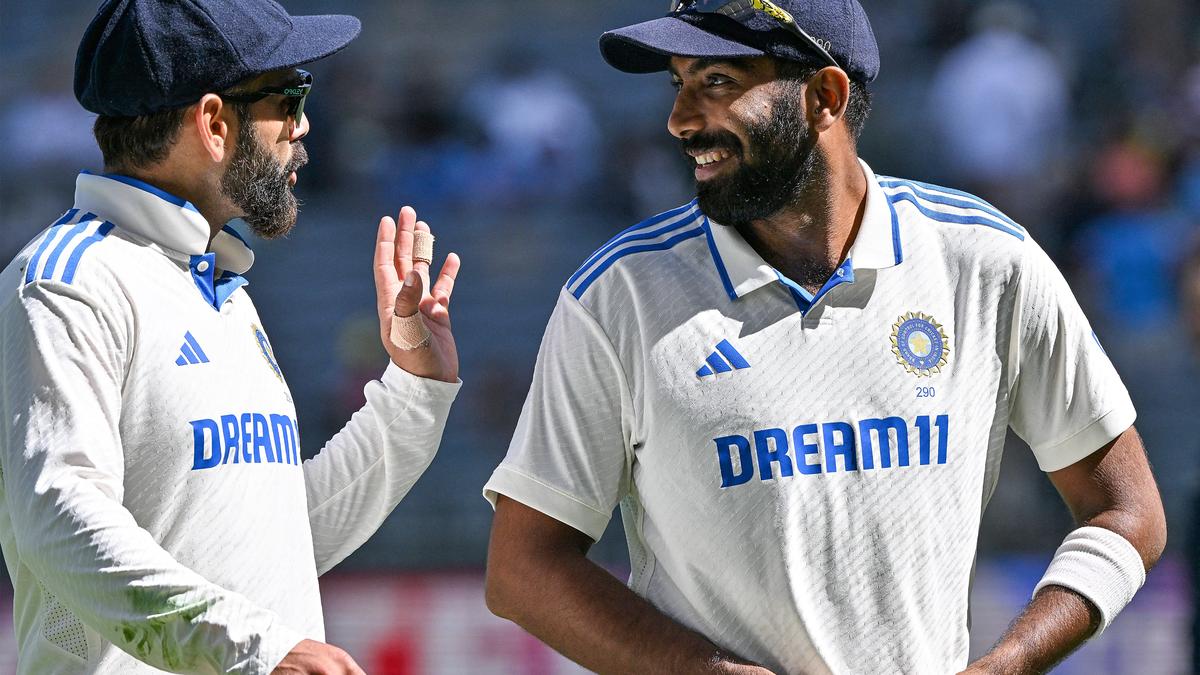
India pulls a switcheroo thanks to courage of conviction Premium
The Hindu
A detailed analysis of India's cricket performance, highlighting the shift in fortunes and strategies during recent matches.
It felt as if a heavenly body with a sense of humour had moved around all the placards carrying excuses. Poor preparation, bad selection, terrible form, weak body language, flat bowling, limp batting, lack of fight (you can add your own here) — the standard reasons for India’s poor performances abroad, and recently, for its 0-3 defeat at home against New Zealand, became Australia’s after the Perth Test. Perhaps, as Tolstoy might have said, all defeated teams are alike; the victorious win in their own way.
Traditional metrics no longer apply to modern Test cricket. It doesn’t matter if you don’t play a first-class match ahead of a five-Test series, nor is gear-changing between the formats such a big deal. Any 22-year-old can do it, as Yashasvi Jaiswal demonstrated with such ease and class. You don’t need to play your best spinners; R. Ashwin and Ravindra Jadeja, with 1357 international wickets between them, were rested.
For those who had an uncomfortable series at home on familiar tracks, an away Test on unfamiliar tracks is all that is needed to get back into nick, as Virat Kohli showed. Sometimes the untried and untested, as with Nitish Reddy and Harshit Rana, are the better options.
And even if your captain is the best fast bowler in the world, you still bat first if you win the toss in Perth — a decision that paid off handsomely. Many of these judgement calls balanced precariously between disaster and success before tipping into the latter. It needed rare courage of conviction, and a refusal to play safe at the start of a series.
Australia and India have played each other so often in recent years that each team is beginning to look and play like the other did in the past. India is fitter, younger, more exuberant, full of spunk, and has become masters at sledging, which for years was an Australian speciality (Jaiswal told fast bowler Mitchell Starc at one point, “It’s coming too slow”). Australia looked diffident, uncertain, indecisive and full of self-doubt.
Before the series began, there were signs that this would be a battle between two ageing teams, yet India’s average age was 26.5 while Australia’s was 32.5. Sometimes fearlessness and lack of baggage can overcome the benefits of experience and longevity.
Every Test win in a ‘Sena’ country (South Africa, England, New Zealand, Australia) is seen as historic because India has won only 29 of the 170 Tests it has played in those countries, a meagre 17 percent. Yet even by that reckoning, the Perth win was exceptional for two reasons. Firstly, it demonstrated how a team down in the dumps after being dismissed for 150 can fight back to wrap up a Test in four days, giving breath to such sporting cliches as toughness, teamwork, the never-say-die spirit.











